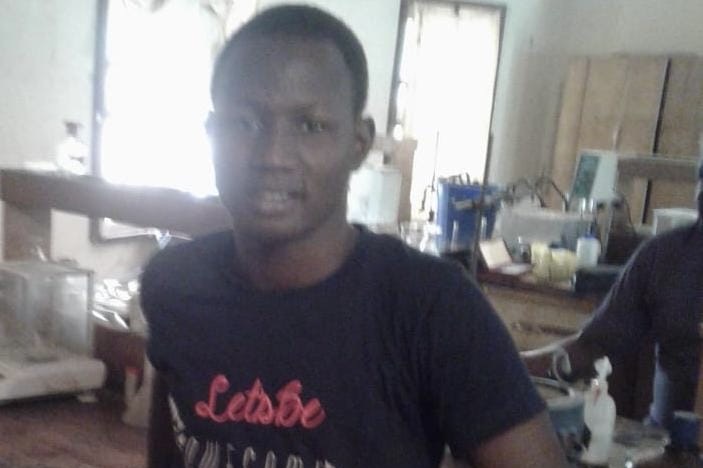From a modest laboratory at the Modibbo Adama University of Technology (MAUTECH) in Yola to high-tech research facilities in Beijing, Innocent Joseph is trailblazing a new path in renewable energy innovation. The Nigerian researcher is gaining global recognition for his groundbreaking work on solar technology using Hibiscus sabdariffa, commonly known as zobo.
Innocent’s interest in solar energy was sparked not by a traditional experiment but by a local drink. “Zobo has always been part of our culture,” he told Tribune. “But I began to see it as more than a beverage—I saw it as a solution.” His curiosity led him to investigate the natural pigments in zobo and their potential use in Dye-Sensitized Solar Cells (DSSCs).
After months of experimentation, Innocent discovered that the anthocyanins in zobo had powerful light-absorption capabilities. “The absorption maximum of the compound at 520-540nm in the visible region of electromagnetic spectrum make it particularly impressive and ideal for solar applications,” he explained. His initial findings showed a promising open-circuit voltage of 0.925V and short-circuit current density of 0.073A/cm², with an efficiency of 0.044%.
While these numbers may seem modest compared to conventional photovoltaic cells, the implications are significant. Innocent’s approach replaced costly synthetic dyes with an abundant, eco-friendly alternative. “Our aim was to create something affordable and sustainable, especially for countries like Nigeria where energy access remains a challenge,” he said.
His research didn’t stop at dye extraction. Innocent collaborated with other experts to improve the architecture of DSSCs, incorporating polyaniline/graphite counter electrodes and titanium (IV) oxide photoanodes. The synergy of theory and practice made his work stand out, eventually earning him a scholarship from the University of Chinese Academy of Sciences (UCAS).
At UCAS in Beijing, Innocent is working alongside top scientists in nanotechnology and renewable energy. “This opportunity is more than an academic milestone,” he remarked. “It’s a chance to contribute globally while solving local problems.” His continued research will also focus on optimizing the performance of natural dyes in solar cells, with an emphasis on scalable deployment across Africa.
Despite international accolades, Innocent remains grounded in his mission to alleviate Nigeria’s energy crisis. “Power cuts are a daily reality for many Nigerians. If we can harness zobo to provide affordable solar energy, then we’re not just innovating—we’re transforming lives,” he said passionately.
His work is also inspiring a new generation of African scientists. “Innocent’s story is proof that African solutions can solve global problems,” said Dr. Oliver Maitera, a professor at MAUTECH who supervise the work in tandem with Prof. Jeffrey Barminas the DG National research institute for chemical technology (NARICT), Zaria. “His success is a testament to what happens when talent meets opportunity.” Said the NARICT DG.
As he continues to make strides in renewable energy, Innocent is not just contributing to science—he’s shaping the future of sustainable development. “My journey is just beginning,” he reflected. “I want to see homes, schools, and businesses in remote areas powered by the same zobo we drink every day.”
From Yola to Beijing, the story of Innocent Joseph is a remarkable blend of science, culture, and determination. With every new discovery, he’s not only rewriting the narrative of African innovation—he’s also proving that the road to energy independence might just begin with a glass of zobo.
WATCH TOP VIDEOS FROM NIGERIAN TRIBUNE TV
- Let’s Talk About SELF-AWARENESS
- Is Your Confidence Mistaken for Pride? Let’s talk about it
- Is Etiquette About Perfection…Or Just Not Being Rude?
- Top Psychologist Reveal 3 Signs You’re Struggling With Imposter Syndrome
- Do You Pick Up Work-Related Calls at Midnight or Never? Let’s Talk About Boundaries







